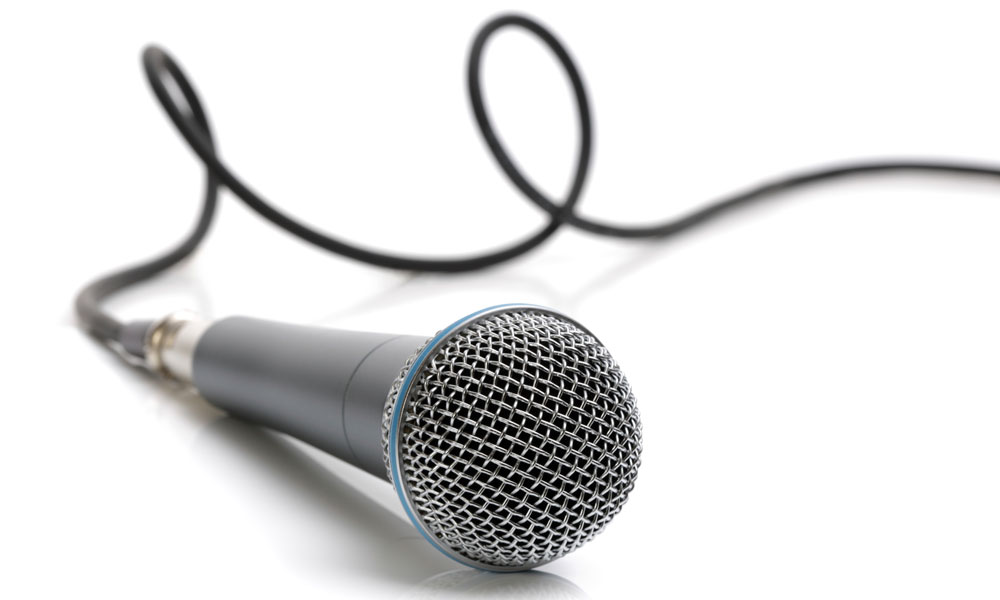
Drop the MIC: Artists Push Apple to Leave Trade Group
The musicFIRST coalition, a group of musicians and record labels that focuses on protecting artist royalties, says Apple should sever ties to the MIC Coalition, a digital music trade group that opposes legislation to increase musicians' royalties.
The musicFIRST coalition, a group of musicians and record labels that focuses on protecting artist royalties, says Apple should sever ties to the MIC Coalition, a digital music trade group that has a different take on the musician royalty issue.
Editor’s note: This piece has been updated to correct a statement in the original story that the MIC Coalition opposes the Fair Play Fair Pay Act of 2015. The coalition has not taken a formal position on the legislation. We regret the error.
The musicFIRST coalition’s letter to Apple is definitely not the first one the company has had to deal with this year. But musicFIRST , which fights for higher artist royalties, hopes the computer giant is listening.
Apple is affiliated with the Music Innovation Consumers Coalition (MIC), which musicFIRST strongly opposes. The artists group wants Apple to drop its ties to MIC, of which it is indirectly a member through the Digital Media Association (DiMA).
MusicFIRST pulled a Taylor Swift move and called out Apple in an open letter, but will the company respond?
A Request to #DropTheMic
The conflict is over royalty payments to artists and record labels, which are central to the proposed Fair Play Fair Pay Act of 2015. The legislation, introduced in April, seeks to ensure that AM and FM radio stations pay artists and labels when they play their music and to require all types of radio (satellite, internet, AM/FM) to pay royalties for using music made before 1972.
MusicFIRST—which counts the Recording Academy, the Recording Industry Association of America, and the American Association of Independent Music, among others, as members—is a key supporter of the Fair Play Fair Pay Act, introduced in Congress by Reps. Jerrold Nadler (D-NY) and Marsha Blackburn (R-TN).
The MIC Coalition is a relatively new group with powerful members such as the Radio Music License Committee, National Association of Broadcasters, and DiMA. At least some of those members, including NAB, are on record as opposing the bill.
The MIC Coalition says it hasn’t taken a public position on the legislation. The organization’s stance on the music royalty pay issue focuses on transparency, calling for more information on ownership, money flow, and billing.
“The MIC Coalition members believe that for the music ecosystem to continue to grow and thrive, we must create a predictable, balanced, and transparent music marketplace,” the coalition stated in a recent press release [PDF]. “Although a more transparent structure in itself does not guarantee fairer treatment, we believe this transparency is a necessary baseline in creating a more sustainable and equitable system.”
Even with MIC’s emphasis that it exists to encourage transparency, musicFIRST challenged Apple to sever its ties to the group.
“We respectfully ask you to consider dropping out of DiMA and, in so doing, the MIC Coalition,” Ted Kalo, executive director of musicFIRST, wrote in the organization’s open letter to Apple, as published by Medium.
Will Apple Respond?
MusicFIRST’s approach evokes a strategy that proved effective earlier this year, when pop artist Taylor Swift penned a missive to Apple.
Swift announced she was holding back her album 1989 from streaming service Apple Music over the company’s plan to not pay producers and artists during a free trial of the service to potential customers. The open letter from arguably the most popular artist in pop music forced Apple to pivot, agreeing to continue paying artists during the three-month trial.
MusicFIRST is likely hoping its letter will get the same swift response.
The message, however, wasn’t all negative: MusicFIRST commended Apple on its strong work for the music industry, noting its innovation and recent history in collaborating with music creators. But the coalition also suggested that Apple’s MIC connection undermines that goodwill.
“[Apple’s] mission is not consistent with anti-artist, anti-creator bulldogs like DiMA and MIC, which really do build their legislative agenda ‘on the backs of artists,’” Kalo wrote to Apple. “This unavoidably lends them your credibility and your reputation.”
If the strategy works with Apple, it wouldn’t be the first time that musicFIRST’s approach has worked. Amazon and National Public Radio also dropped out of the MIC Coalition in the wake of criticism over its approach.






Comments